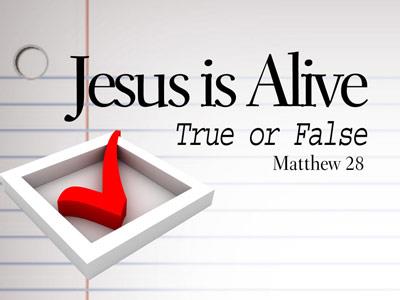-
Let Us Make Man
Contributed by Scott Carroll on Nov 28, 2017 (message contributor)
Summary: GODHEAD
Let Us Make Man
This is one of the most common arguments that is used by Trinitarians to prove multiple persons in the godhead.
When God said let us make man they insist that it be a multiplicity of divine persons.
I shall endeavor to explain this text of scripture.
Gen 1:26-27
26 And God said, Let us make man in our image, after our likeness: and let them have dominion over the fish of the sea, and over the fowl of the air, and over the cattle, and over all the earth, and over every creeping thing that creepeth upon the earth.
27 So God created man in his own image, in the image of God created he him; male and female created he them. KJV
I. THE CONTEXT
The context itself provides an excellent place to start.
Verse 27 is where God did what he determined to do in verse 26.
When God fulfilled the “Let Us” of verse 26, it was the “His Own” and the “He” of verse 27.
God created man in HIS own image and in the image of God created HE him.
Not THEIR own image, and not in the image of God created THEY him.
If God had intended to convey the idea of multiple persons, he sure muddied the water with the singular terms that he used in verse 27.
II. WHAT DOES US MEAN
III.
A. Grammatically
They usage of the Hebrew phrase “let us make man” cannot be shown beyond reasonable doubt to be a plurality of persons based on the way that it is used elsewhere in scripture.
Gen 1:26 And God430 said,559 Let us make6213 man120 in our image,6754 after our likeness:1823 and let them have dominion7287 over the fish1710 of the sea,3220 and over the fowl5775 of the air,8064 and over the cattle,929 and over all3605 the earth,776 and over every3605 creeping thing7431 that creepeth7430 upon5921 the earth.776
The phrase used for let us make man is from the Strong’s 6213.
I am going to keep this extremely simply, yet provide a point of reference for further study.
I simply want to point out how this phrase is uses elsewhere in scripture.
Follow the 6213 in all of the following verses that I will show you.
Also, I will limit my examples, for fear of redundancy, to the creation account.
Gen 1:31 And God430 saw7200 (853) every thing3605 that834 he had made,6213 …
Gen 2:2 And on the seventh7637 day3117 God430 ended3615 his work4399 which834 he had made;6213 and he rested7673 on the seventh7637 day3117 from all4480, 3605 his work4399 which834 he had made.6213
Gen 2:18 And the LORD3068 God430 said,559 It is not3808 good2896 that the man120 should be1961 alone;905 I will make6213 him a help5828 meet for him.5048
Gen 5:1 This2088 is the book5612 of the generations8435 of Adam.121 In the day3117 that God430 created1254 man,120 in the likeness1823 of God430 made6213 he him;
Gen 6:6 And it repented5162 the LORD3068 that3588 he had made6213 (853) man120 on the earth,776 and it grieved6087 him at413 his heart.3820
Gen 6:7 And the LORD3068 said,559 I will destroy4229 (853) man120 whom834 I have created1254 from4480, 5921 the face6440 of the earth;127 both man,4480, 120 and5704 beast,929 and5704 the creeping thing,7431 and5704 the fowls5775 of the air;8064 for3588 it repenteth5162 me that3588 I have made6213 them.
Gen 7:4 For3588 yet5750 seven7651 days,3117 and I595 will cause it to rain4305 upon5921 the earth776 forty705 days3117 and forty705 nights;3915 and (853) every3605 living substance3351 that834 I have made6213 will I destroy4229 from off4480, 5921 the face6440 of the earth.127
It makes you wonder where the plurality of persons have gone.
It sounds like the grammar is on our side.
Surely there was no intent of the part of God to display a plurality of persons in the godhead by the use of that phrase.
The Trinitarian position cannot prove beyond reasonable doubt by this phrase that multiple persons are what God was intending to convey with this verse.
The use of us in the English does not necessitate multiple persons.
Though much more could be cited, I will only list the following to point you in the right direction for more detailed research.
US- 2. royal us: used by a king or queen, or the editor of a newspaper, to mean “me” (formal)
Encarta ® World English Dictionary © & (P) 1998-2004 Microsoft Corporation. All rights reserved.
Here is a scriptural exapample…
Dan 2:24
24 Therefore Daniel went in unto Arioch, whom the king had ordained to destroy the wise men of Babylon: he went and said thus unto him; Destroy not the wise men of Babylon: bring me in before the king, and I will shew unto the king the interpretation.
Only Daniel was to go before the king.

 Sermon Central
Sermon Central



